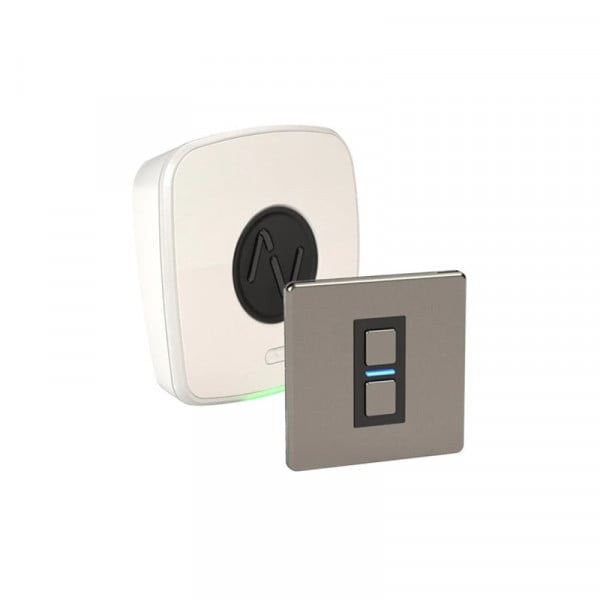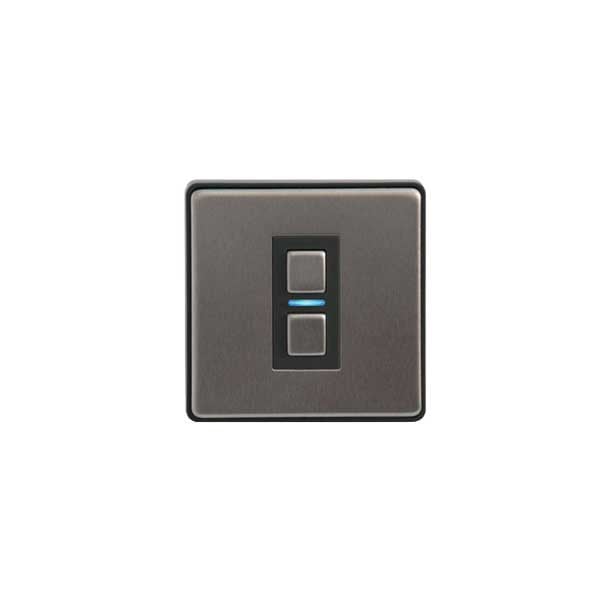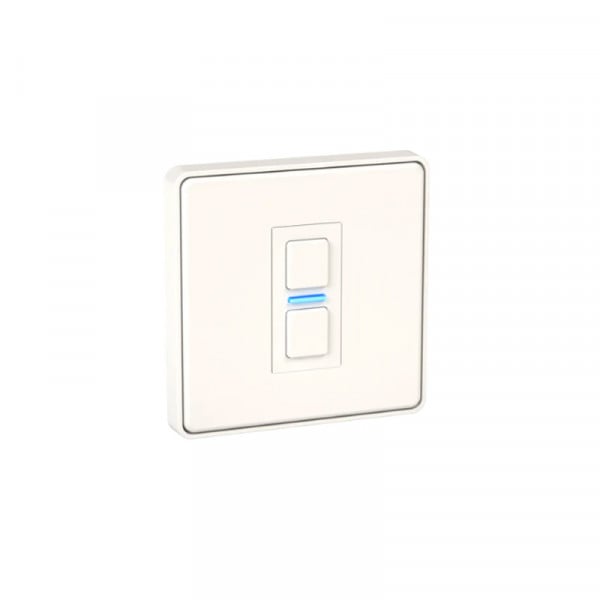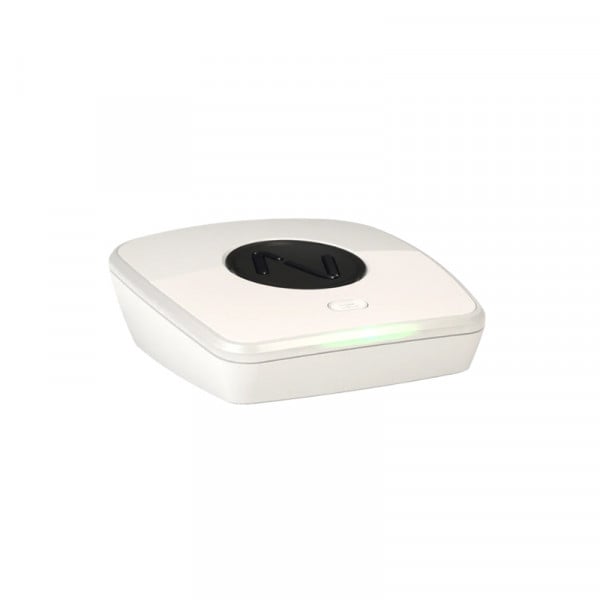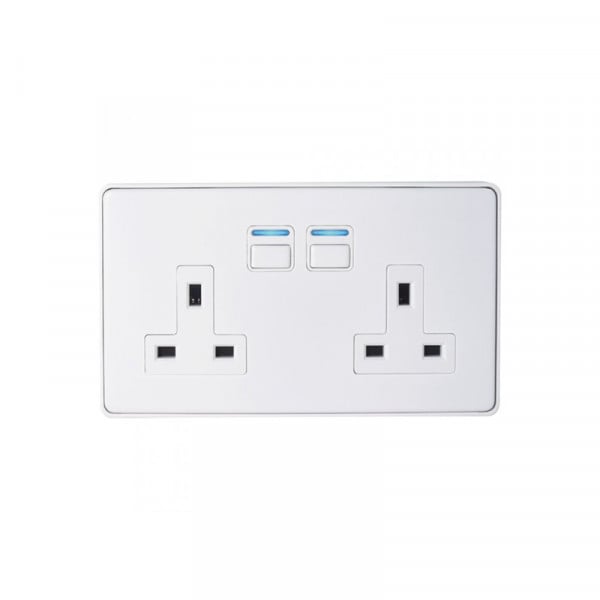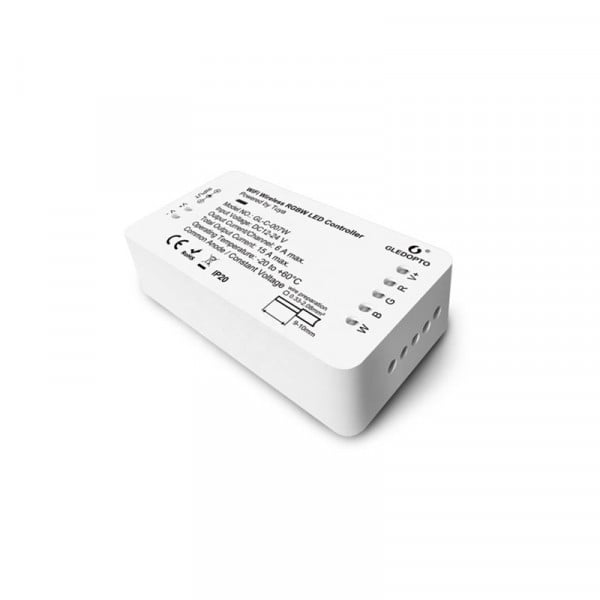Smart Lighting
Control your lights or electrical equipment from your smartphone with a smart lighting product.

-

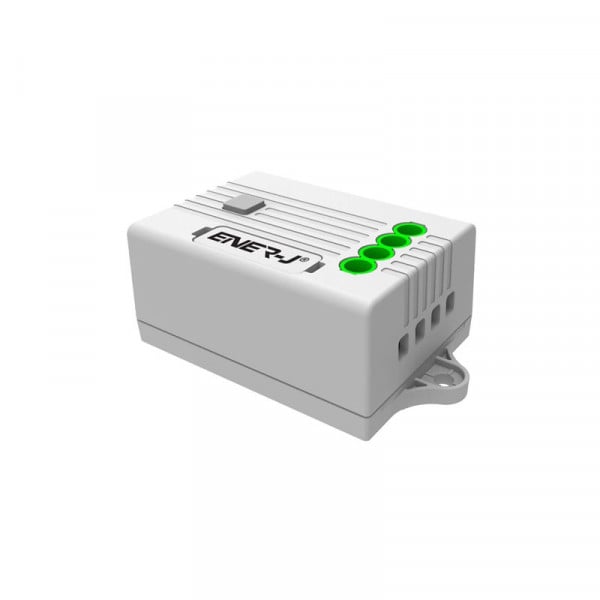 Wireless Receivers With RF & Wi-fi Control Ener-J Pro RangeSpecial Price £24.00 Incl. VAT2 Variants In StockPer Each
Wireless Receivers With RF & Wi-fi Control Ener-J Pro RangeSpecial Price £24.00 Incl. VAT2 Variants In StockPer Each -
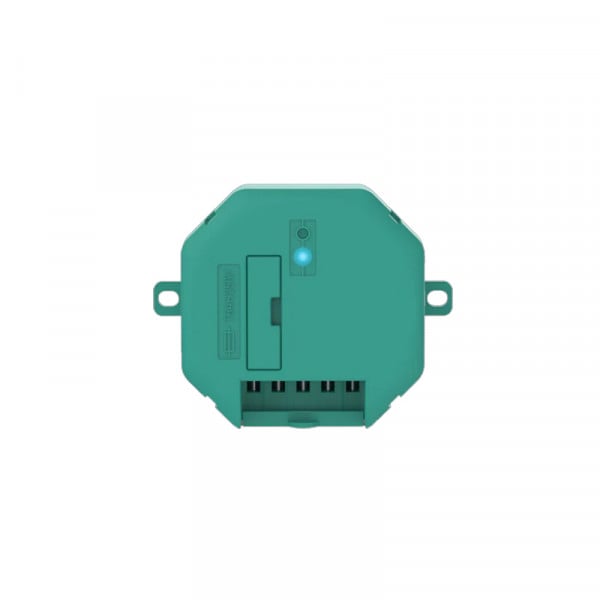 Lightwave Smart Relay With Switch Sense Input£69.95 Incl. VAT5 In Stock | More Available In Usually 3-5 daysPer Each
Lightwave Smart Relay With Switch Sense Input£69.95 Incl. VAT5 In Stock | More Available In Usually 3-5 daysPer Each -

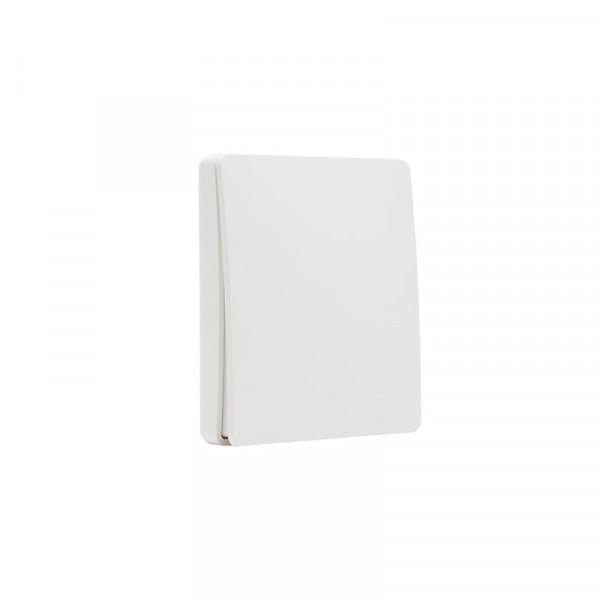 Kinetic Wall Switches Forum KonectSpecial Price £13.36 Incl. VATOver 100 Variants In StockPer Each
Kinetic Wall Switches Forum KonectSpecial Price £13.36 Incl. VATOver 100 Variants In StockPer Each -
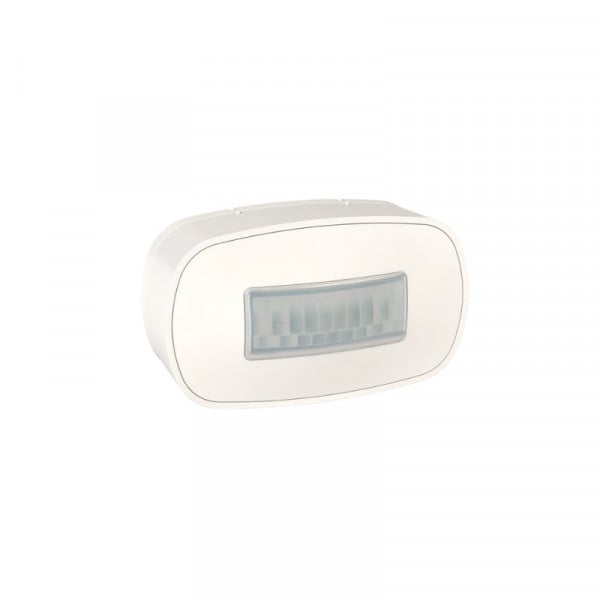 Lightwave Smart PIR Motion Sensor Battery Powered£69.95 Incl. VAT5 In Stock | More Available In Usually 3-5 daysPer Each
Lightwave Smart PIR Motion Sensor Battery Powered£69.95 Incl. VAT5 In Stock | More Available In Usually 3-5 daysPer Each -
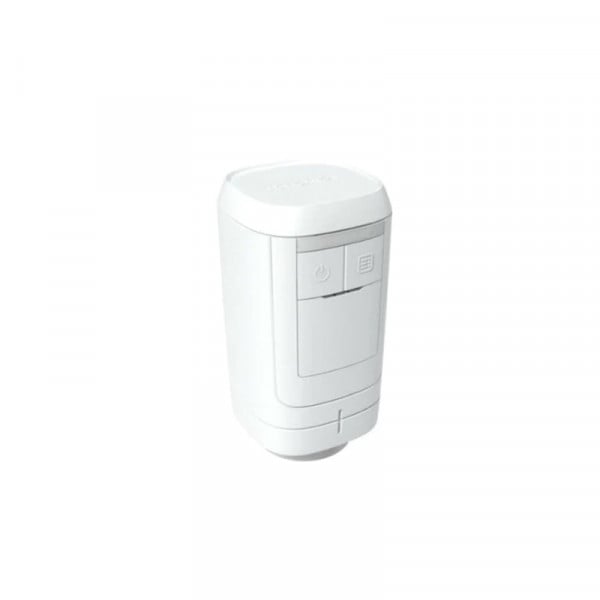 Lightwave Honeywell Wireless Radiator ControllerSpecial Price £68.11 Incl. VAT Regular Price £71.70 Incl. VAT5 In Stock | More Available In Usually 3-5 daysPer Each
Lightwave Honeywell Wireless Radiator ControllerSpecial Price £68.11 Incl. VAT Regular Price £71.70 Incl. VAT5 In Stock | More Available In Usually 3-5 daysPer Each -
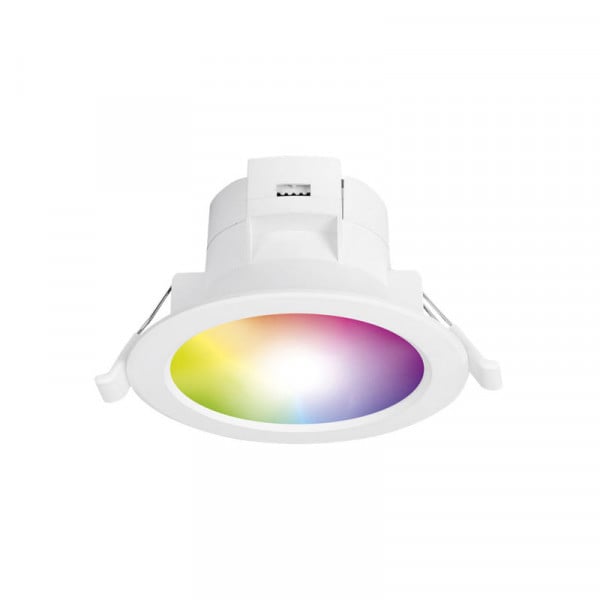 Bluetooth Colour Changing LED Downlight 10W RGBCX Aurora AOne£29.99 Incl. VATOver 100 in stockPer Each
Bluetooth Colour Changing LED Downlight 10W RGBCX Aurora AOne£29.99 Incl. VATOver 100 in stockPer Each
What is Smart Lighting?
Smart lighting is a term used to describe a lighting product that can be controlled using a smartphone. Instead of having a conventional light switch or dimmer switch, smart lighting products operate more intelligently.
The main advantage of smart lighting products is that they provide you with the ability to do more than just switch or dim. You have the added benefits of being able to set timer functions that switches your lights without you even having to be there.
Various light fittings and electrical devices can all be activated from one command. You can link multiple products together including switching from occupancy detectors and photocells. Or, just like a light switch, they can allow you to switch things manually via a remote control or your smart phone from anywhere in the world.
Best Features
One of the best features of smart lighting products is the ability to set lighting scenes. Lighting scenes can dim or switch a mixture of your lighting circuits to the level of your choosing at the touch of one button. If you’re watching TV in your lounge you might want your main light to be switched totally off, your wall lights to be dimmed down to 30% and your table lamps to be switched on; this could be called your ‘TV scene’.
Home Automation Wind of Change
For many years brands like Lutron, Crestron and Rako have dominated the home automation market with typical installations starting at the £1000 mark, but there are now many newcomers on the scene such as Lightwave (formally Lightwave RF) who offer a much more affordable solution. Its also easier to install and doesn't require any special programming.
All smart lighting systems work differently; some require a main control panel for them to work such as the Lutron Grafik Eye QS but other systems like Lightwave operate independently. A Lightwave system could be anything from just one dimmer switch, you also need a Wi-Fi Hub for Lightwave but that's it, no other items are needed.
Smart lighting has certainly shaken up the entire home automation market. While making it more popular, its also become affordable for everyone.
Do I Need a Hub?
Some systems like Lightwave do require a hub. Some standalone systems like Integral smart lamps don't, they can operate directly from the Tuya App. Sometimes the cost of a Wi-Fi hub can prohibit the use of some brands especially for smaller, single room projects.
Other Brands
Some brands of smart lighting products don't require a hub such as Ener-J. They work out of the box, without needing any other accessories. Smart lamps are particularly good for individual lights or rooms when you want something simple.
Many of these systems such as Lightwave can do much more than just lighting and now include, electrical power sockets, security and heating controls.
When comparing smart lighting systems, some of them require a hub or gateway to allow internet connectivity such as the Philips Hue. Hubs cost more money as they are an additional component. Some of our latest smart lighting products such as the Ener-J smart range don’t need a hub. The products themselves communicate directly with your home router.
The Philips Hue is a product that completely revolutionized the world of smart light. This is a failry costly product that needs a hub. We stock alternatives to this including Aurora, Integral and Ener-J. These brands are a more affordable alternative to the Philips Hue range and have more extensive accessories available.
Home Automation
If we use the term smart lighting to describe lamps and fittings, then the term home automation can be used for controls. This marketplace is changing rapidly; many of the giants of the industry such as Lutron, Creston and Rako are overpriced. Newcomers such as Lightwave have gained market share, offering similar systems that cost a fraction of the price.
The Lutron Graifk Eye for example was once the benchmark for home automation but if you want to control your lights from an App, you need at least two more add-ons. Recently Lutron decided to stop producing the Grafik Eye system which hasn't come as a surprise as its expensive and become dated.
Comparison
In comparison to Lightwave which does require a hub and at least one smart switch or socket, it has no central processor. It does depend on what you actually want to achieve from a home automation system, if you're unsure on which system to go get in touch with us and we'll recommend the best system that suits you and your budget.
Voice Activated Dimming
If you want to be really technologically advanced you can now control your lighting and electrical products by voice command. Lightwave and Ener-J products for example are compatible with Amazon Alexa and Google Home.
Connected Lighting
Widely regarded by lighting industry leaders as the future of commercial lighting, connected lighting is a mixture of smart lighting and home automation. With light fittings that communicate via an App, letting it know if it’s operational, how much energy its consuming and if it needs replacing.
Many of the big lighting manufacturers including Ansell Lighting and Philips now have their own versions of connected lighting systems.

